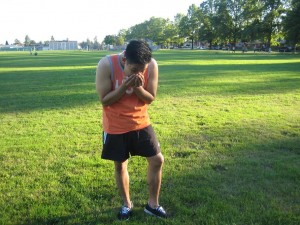A severe toothache is most likely due to tooth decay for both children and adults. The toothache might be continuous or it can intensify after eating or brushing which leads to intense pain that working, sleeping or other daily activities are disrupted. There are home measures that can reduce the severe toothache while waiting for an appointment with a dentist to properly diagnose and manage the underlying cause of the pain.
Home remedies for severe toothache
There are home remedies that can alleviate a severe toothache. For the swelling and pain, apply an ice pack against the cheek on the affected side of the head.
It is not recommended to use heat since this can aggravate the already severe toothache and avoid very hot and cold foods as well. The individual should brush and floss at the end of every meal or gargle using mouthwash to wedge out any fixed food that can contribute to the pain. In addition, gargling using warm salt water is also beneficial.
Over-the-counter medications
In most circumstances, over-the-counter pain medications are strong enough to minimize a severe toothache and the accompanying inflammation. Both ibuprofen and acetaminophen can be taken to control the discomfort of a severe toothache but make sure that the instructions on the packaging are carefully followed.

Once the origin of the discomfort is determined, apply an antiseptic that includes benzocaine straight on the sore gum or tooth to provide momentary relief from the pain. Just remember not to use too much benzocaine since the numbing agent might disrupt with eating and swallowing if used excessively.
Alternative measures
For fast but momentary relief of the discomfort from a severe toothache, simply soak a cotton ball in clove oil and apply against the affected tooth. If taken internally, willow bark reduces the inflammation and pain linked with a toothache. Take note that willow bark works similarly as aspirin.
Capsaicin or red pepper is also considered effective in relieving a severe toothache if applied topically on the affected tooth.
When to seek medical care
In case of a persistent or severe toothache, it might require thorough assessment and treatment by a dentist. Depending on the underlying cause, tooth extraction, filling or root canal might be needed. In some cases, antibiotics that are taken orally are prescribed if an infection developed. In most cases, penicillin is the favored antibiotic in majority of dental infections while clindamycin is utilized as an alternative if penicillin is contraindicated.
Set an appointment with a dentist right away if there are indications of an infection such foul discharge, reddened gums, pain or swelling when biting down, fever and difficulty breathing or swallowing. Proper treatment for the cause of the severe toothache can permanently get rid of the pain along with other symptoms.
